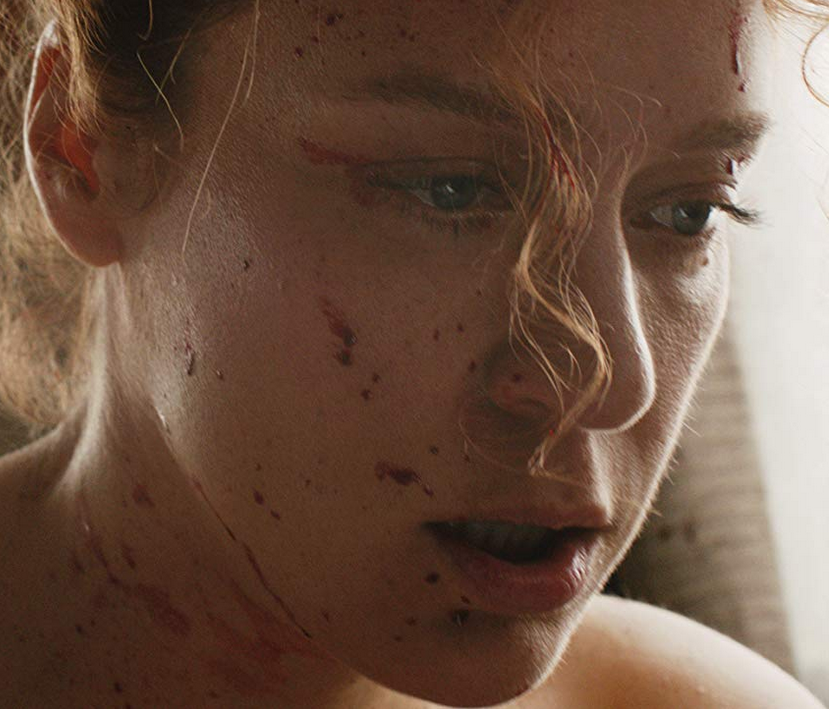by Jason Adams

In the small city of Fall River, Massachusetts in the year of our lord (somebody's lord, anyway) 1892 the father and step-mother of Lizzie Andrew Borden were found hacked about the head and face with a hatchet until dead - the nursery rhyme says they got forty and forty-one whacks respectively but father got eleven while the late Mrs. Borden got a few more, if not quite twenty. The next eleven months after that moment, until the end of Lizzie's trial in June of 1893, were spent speaking of little else - a well-to-do lady murderess! What a lark!
The case of Lizzie has held a dark fascination ever since, inspiring countless plays and rhymes and episodes of Law & Order: SVU, but it's been an especially Borden-full couple of years now what with Christina Ricci's Lifetime-movie-turned- miniseries-turned-movie and now Craig William Macneill's feature film simply called Lizzie. Out this weekend and starring Chloë Sevigny, Lizzie injects a timely dose of patriarchal oppression and same-sex repression to the mix, theorizing that Lizzie was caught up (not to mention just plain caught) in a love affair with the Borden's maid Bridget (played by Kristen Stewart).
If the life not lived between Lizzie and Bridget represents a road not traveled thanks to the impossible time and place that the women found themselves in, the film Lizzie feels like a venture in the right direction...
... its attention to the interior life of these interior women feels like a fine course correction; it just snaps the pieces together in ways that really work. It made me appreciate Lizzie's story in ways the lurid versions of yore never really have. Sevigny and Stewart have fine chemistry, shaggy East Village punks eyeing each other across whale-boned corsets with "what a fine mess we've gotten ourselves into" expressions stamped across their coy half smirks.
There's a truly fine supporting cast around them - so fine they all feel a little underused, but still, with folks like Jamie Sheridan and Fiona Shaw and Kim Dickens and Denis O'Hare roaming the margins you've at least got a wall of curious and fascinating faces to admire. There's one moment where Shaw specifically is allowed to let her barely buried mania shine through that really makes you wish her Mrs. Borden had a little more meat to her bones.
 And ultimately that's how the film feels as a whole - Lizzie frames the legend in a manner worthwhile of re-framing the whole ordeal, and it's a pleasure to look at with its stern New England surfaces washed with cold sun and colder still to the touch; I found myself especially infatuated with Natalie O'Brien's almost fetishistically repressed costumes, stiff edged but soft as mourning shrouds. But you're left wanting more, somehow - its flashes of violence and well-used nudity betray a lusty pumping heart beneath those garments that it never lets quite loose; it never becomes the Lizzie the legend was truly meant to be.
And ultimately that's how the film feels as a whole - Lizzie frames the legend in a manner worthwhile of re-framing the whole ordeal, and it's a pleasure to look at with its stern New England surfaces washed with cold sun and colder still to the touch; I found myself especially infatuated with Natalie O'Brien's almost fetishistically repressed costumes, stiff edged but soft as mourning shrouds. But you're left wanting more, somehow - its flashes of violence and well-used nudity betray a lusty pumping heart beneath those garments that it never lets quite loose; it never becomes the Lizzie the legend was truly meant to be.